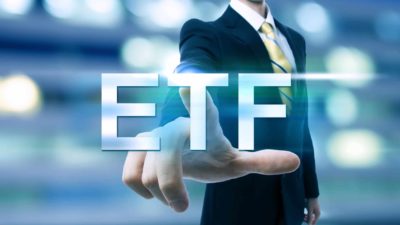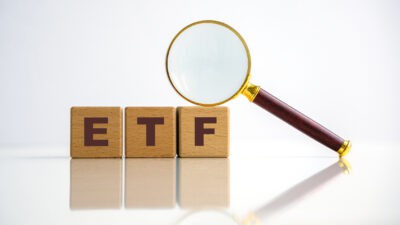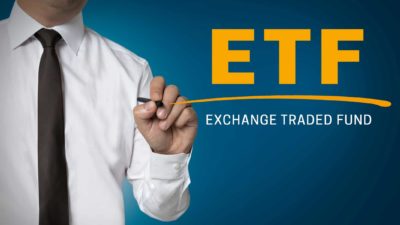There are many different ways for people to invest in ASX shares. Choosing an S&P/ASX 200 Index (ASX: XJO) exchange-traded fund (ETF) is one. But is it an effective way to go? After all, when we look at the ASX 200, it's dominated by a few names like BHP Group Ltd (ASX: BHP), Commonwealth Bank of Australia (ASX: CBA), and CSL Ltd (ASX: CSL).
Before we delve into the pros and cons of investing in ASX 200 ETFs, I should clarify that not every ETF I'll discuss here is strictly focused on the ASX 200, but they all have roughly the same holdings, so I believe my comments can be applied to any of them.
For example, the Vanguard Australian Shares Index ETF (ASX: VAS) aims to track the S&P/ASX 300 Index (ASX: XKO). While it's invested in 100 more businesses than ASX 200 ETFs, these allocations are individually so small that it's essentially very similar to the SPDR S&P/ASX 200 ETF (ASX: STW) and the iShares Core S&P/ASX 200 ETF (ASX: IOZ).
I'm also going to include the BetaShares Australia 200 ETF (ASX: A200) in the mix. It tracks the Solactive Australia 200 Index, but again, the overall holdings are very similar.
With that said, let's take a look at the positive side of investing in these ASX 200 ETFs first.
Positives
The first thing to say is that all these ETFs are invested in at least a couple of hundred businesses, which means investors are getting a decent amount of diversification from each option.
The holdings are weighted towards various blue chips such as BHP, National Australia Bank Ltd (ASX: NAB), Telstra Group Ltd (ASX: TLS), Wesfarmers Ltd (ASX: WES), Woolworths Group Ltd (ASX: WOW), and Rio Tinto Ltd (ASX: RIO). A high weighting to these sorts of companies may be less volatile, and perhaps have lower risk than other areas of the ASX share market like ASX small-cap shares.
These ASX 200 ETFs also have low management fees compared to what an active fund manager might charge. For example, the VAS ETF has an annual management fee of just 0.07%, and the A200 ETF's annual fee is even lower at just 0.04%.
Furthermore, the composition of these ASX ETFs means they have relatively high dividend yields. ETF yields are dictated by those of the underlying holdings.
Overall, the returns across these ASX 200 ETFs have been fairly good over the last five or so years, averaging in the high single digits. That's a decent rate to compound wealth.
Negatives of ASX 200 ETFs
All these options have relatively high weighting to just two sectors – mining and banking. There could be more effective ASX ETFs on offer, such as the BetaShares Australian Ex-20 Portfolio Diversifier ETF (ASX: EX20), if investors are looking for exposure in a wider variety of sectors.
Over the last decade, the ASX 200 hasn't actually done that much in capital growth terms, which I'll get to in a moment. Of course, there are the dividends as well which make up a sizeable part of the overall return for these ASX 200 ETFs.
The VAS ETF has only delivered an average capital return per annum of 3.6% over the last decade and an average distribution of 4.6% per annum, amounting to total returns of 8.2% per annum. Australian adults working full-time are likely to be in an income tax bracket of at least 32.5%, so receiving a relatively high proportion of the return as dividends can result in more tax and lower after-tax returns.
Plenty of readers may prefer more capital growth than what these ASX 200 ETFs have delivered. There are internationally-focused ETFs that have achieved stronger total returns, with a majority of returns being capital growth rather than from dividends.
For example, the Vanguard MSCI Index International Shares ETF (ASX: VGS) and the iShares S&P 500 ETF (ASX: IVV) are invested in many hundreds of global businesses that have large addressable markets with good earnings growth potential.
Since its inception in November 2014, the VGS ETF has made average returns per annum of 12.2%. Over the past decade, the IVV ETF has delivered an average return per annum of 15.7%.
Past performance is not something we should rely on for future performance, but I'll run through an example of what a big difference these returns could have led to over the last 10 years.
An investment of $500 per month that returned 8.2% per annum would turn into $88,000, according to a compound interest calculator. If it returned 12.2% per annum, it'd have reached $106,000 after 10 years. An average return per annum of 15.7% would have turned into $126,000 after a decade.
The ASX 200 ETFs can be effective investments and part of a diversified portfolio, but I also believe there are other ETFs that could provide stronger diversification and perhaps be better long-term investments.









